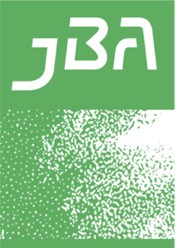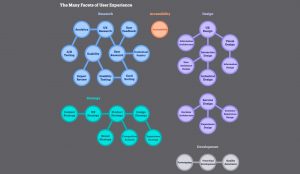Journal of Business Anthropology

The Journal of Business Anthropology is an Open Access journal which publishes the results of anthropological and related research in business organizations and business situations of all kinds. On the website you will find the Published Issues as well as Reviews of literature relevant to the field. The journal also publishes Field Reports and Case Studies as they are submitted.
Vol 1, No 1 (2012)
Editorial: What’s in a Name? – Editors Introduction to the Journal of Business Anthropology (pdf)
Brian Moeran, Christina Garsten
Anthropology and Business: Influence and Interests (pdf)
Marietta L. Baba
The premise of this article is that the expansive domain of business, as expressed in its market-transaction based, organizational, and institutional forms, has influenced the development or “making” of anthropology as a discipline and a profession for the better part of a century (i.e., since the 1920s). The influences were reciprocal, in that making anthropology played a role in forming the industrial order of the early 20th century and established precedents for the interaction of anthropology and the business domain that continues into the contemporary era. Anthropologists acknowledge that the time has come for our discipline to attend to business and its corporate forms and engage them as legitimate subjects of inquiry, and this suggests that it would be prudent to examine the ways in which business is focusing upon anthropology, and the potential implications of such attention. Throughout this article, the term “business” will refer to private firms as members of an institutional field, meaning “organizations that in the aggregate, constitute a recognized area of institutional life”. Over time, this field has attracted prominent academic researchers (as will be discussed herein), who may become intellectual “suppliers” to businesses, and thus part of the field. Therefore, the term :”business” may include any organization or individual that is part of the field, including academic suppliers (see also discussion section). To reflect the scope and complexity of the institutional field, the term “domain of business” may be used interchangeably with “business”.
Horizons of Business Anthropology in a World of Flexible Accumulation (pdf)
Allen W. Batteau, Carolyn E. Psenka
Classically, anthropology supplied a cultural critique, by contrasting the Noble Savage to contemporary institutions and exposing the effects of structures of authority. This understanding of humanity was expanded a hundred years ago by Boas’s embrace of cultural and linguistic variety within a common humanity. Similarly, the classical role for business anthropology and other forms of applied anthropology has been to identify areas in contemporary enterprises and institutions where improvements could be made. Today anthropologists’ engagement with the contemporary world of business in a régime of flexible accumulation is expanding our understanding of the human project, interrogating the régimes of value and extension whose scale is global and whose scope penetrates to the deepest levels of consciousness. Using contemporary ethnographic insights from the authors and other anthropologists, this article suggests an enlarged understanding of and direction for business anthropology at the frontier of anthropology that uses classic anthropological approaches to investigate the sites where new human possibilities are being assembled and created.
Close Encounters: Anthropologists in the Corporate Arena (pdf)
Melissa Cefkin
The corporate encounter invites casting an anthropological gaze on the objects and practices of corporate worlds. This article delineates three perspectives of the anthropologist on this encounter: (1) with the things corporations make (products and services), (2) with the way they make them (acts of production), and (3) with organizational imperatives (corporate forms). This examination draws specifically on the work of those who operate from within the corporate arena by referencing papers from Ethnographic Praxis in Industry Conference (EPIC). Corporate actors, in turn, seek more nuanced views on human experience and aim to exploit the “people” and “practices” – dimensions of their existence and have turned to anthropologists in the process. A brief exploration of the hopes and disjuncture that help shape the encounter from the point of view of anthropologists’ interlocutors inside the corporation rounds out this examination of the anthropologists’ corporate encounter.
Organization Theory Meets Anthropology: A Story of an Encounter (pdf)
Barbara Czarniawska
This text briefly depicts the history of an encounter between anthropology and organization theory in the Anglo-Saxon literature in the period 1990-2010 as seen by an organization scholar. In focus are some stable characteristics and some changes in this relationship, against the background of wider developments in societies and in social sciences. The article ends with suggestions concerning future possibilities of combining the insights of the two fields in a fruitful and interesting way.
Studying Consumption Behaviour through Multiple Lenses: An Overview of Consumer Culture Theory (pdf)
Annamma Joy, Eric Ping Hung Li
Since Miller’s (1995) ground-breaking directive to the anthropology community to research consumption within the context of production, CCT has come of age, offering distinctive insights into the complexities of consumer behaviour. CCT positions itself at the nexus of disciplines as varied as anthropology, sociology, media studies, critical studies, and feminist studies; overlapping foci bring theoretical innovation to studies of human behaviours in the marketplace. In this paper, we provide a synthesis of CCT research since its inception, along with more recent publications. We follow the four thematic domains of research as devised by Arnould and Thompson (2005): consumer identity projects, marketplace cultures, the socio-historic patterning of consumption, and mass-mediated marketplace ideologies and consumers’ interpretive strategies. Additionally, we investigate new directions for future connections between CCT research and anthropology.



